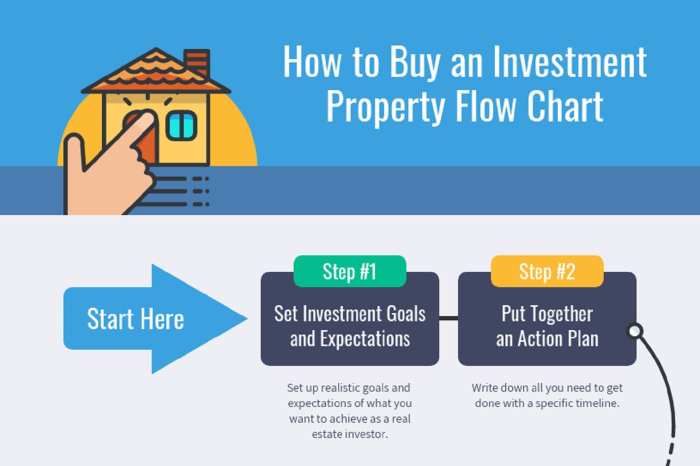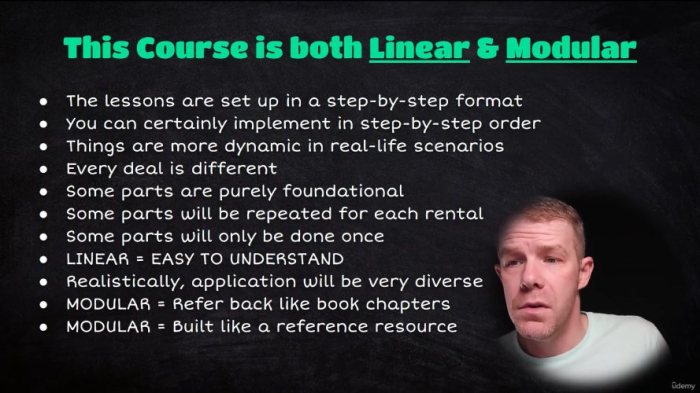Buy Investment Property with Little Money Down

How to buy investment property with little money down takes center stage, and this guide unveils a world of possibilities for those seeking to enter the real estate market without a hefty down payment. The path to owning investment property is paved with various financing options, creative strategies, and due diligence steps. This guide provides a comprehensive exploration of the key elements, from understanding different down payment options to leveraging alternative financing strategies and building a profitable investment portfolio.
By navigating the intricacies of securing financing, conducting thorough due diligence, and employing smart investment strategies, you can unlock the potential of real estate ownership even with limited capital. This guide serves as a roadmap to help you navigate the process confidently, enabling you to make informed decisions and build a solid foundation for a successful real estate investment journey.
Understanding Down Payment Options

Securing financing for an investment property often hinges on your ability to make a substantial down payment. However, there are various loan programs designed to make investment property ownership more accessible, even with limited funds. This section will explore different down payment options for investment properties, outlining their benefits, drawbacks, and real-world applications.
Conventional Loans
Conventional loans are offered by private lenders, such as banks and credit unions, and are not insured or guaranteed by the government. They often require a higher credit score and down payment than government-backed loans.
Advantages
- Generally offer lower interest rates compared to government-backed loans.
- Allow for larger loan amounts, potentially facilitating the purchase of more valuable properties.
Disadvantages
- Typically require a larger down payment, usually 20% of the purchase price, though some options allow for lower down payments.
- Require a strong credit history and a high credit score, usually 620 or higher.
Example
Let’s say you want to purchase a $200,000 investment property. With a conventional loan requiring a 20% down payment, you would need $40,000 upfront. However, some conventional loan programs allow for down payments as low as 5%, which would require $10,000.
FHA Loans
FHA loans are insured by the Federal Housing Administration (FHA), making them more accessible to borrowers with lower credit scores and down payments. They are a popular choice for first-time homebuyers and investors with limited funds.
Advantages
- Require a lower down payment, typically 3.5% of the purchase price.
- Have more lenient credit score requirements, generally 580 or higher.
Disadvantages
- Carry a higher interest rate than conventional loans.
- Require mortgage insurance premiums (MIP) throughout the loan term, which can increase overall costs.
Example
Using the same $200,000 investment property example, an FHA loan would require a down payment of $7,000 (3.5% of the purchase price). This makes it a more attractive option for investors with limited capital.
VA Loans
VA loans are available to eligible veterans, active-duty military personnel, and surviving spouses. They are known for their low down payment requirements and competitive interest rates.
Advantages
- Do not require a down payment, though lenders may require a funding fee.
- Have no private mortgage insurance (PMI) requirements.
- Offer competitive interest rates.
Disadvantages
Example
A veteran looking to invest in a $250,000 property could potentially secure a VA loan with no down payment, making it an extremely attractive option.
Owner Financing
Owner financing, also known as seller financing, occurs when the property seller provides the financing for the buyer instead of a traditional lender. This can be a viable option for investors with limited funds, especially when dealing with distressed properties or properties with unique financing needs.
Advantages
- Allows for lower down payments, as the seller may be willing to accept a smaller upfront payment.
- Can be a good option for properties with financing challenges, such as those in need of significant repairs.
Disadvantages
- Interest rates may be higher than conventional loans.
- The terms of the financing agreement are negotiated directly with the seller, which may be less standardized than traditional loans.
Example
An investor looking to purchase a fixer-upper property may find a seller willing to finance the purchase with a low down payment and a longer repayment term, allowing the investor to invest in the property’s rehabilitation without a large upfront investment.
Finding Investment Properties with Low Down Payment Requirements

Securing an investment property with a low down payment can be a game-changer for your real estate journey. While traditional mortgages often require a substantial down payment, there are alternative financing options that can make owning an investment property more accessible.
This section explores the strategies and resources for finding investment properties that accept low down payments, emphasizing the importance of thorough research and negotiation.
Owner Financing
Owner financing, also known as seller financing, is a financing arrangement where the seller of the property acts as the lender. This option can be particularly attractive for buyers seeking lower down payments, as sellers are often willing to negotiate flexible terms, including a smaller down payment.
Here are the key benefits of owner financing:
* Lower Down Payment: Sellers often accept a lower down payment compared to traditional mortgages, making it more feasible for investors with limited capital.
* Flexible Terms: Owner financing can offer more flexibility in terms of interest rates, loan duration, and repayment schedules, allowing for a more tailored arrangement.
* Faster Closing: Owner financing can sometimes lead to faster closing times compared to traditional mortgage processes.
It is important to carefully review the terms of the owner financing agreement, including the interest rate, repayment schedule, and any potential penalties for early repayment.
Seller Financing
Similar to owner financing, seller financing allows the seller to act as the lender. However, unlike owner financing, seller financing may involve a third-party lender to facilitate the process.
Seller financing can be a valuable option for investors who:
* Have a Limited Credit History: Seller financing can be a viable option for investors with limited credit history who may not qualify for traditional mortgages.
* Need Flexibility: Sellers are often more flexible with terms, allowing for customized payment plans and potentially lower down payments.
* Seek Faster Closing: Seller financing can sometimes expedite the closing process, enabling investors to acquire properties more quickly.
Before entering into a seller financing agreement, ensure a thorough understanding of the terms, including interest rates, loan duration, and any potential prepayment penalties.
Rent-to-Own Options
Rent-to-own arrangements provide an alternative path to property ownership, allowing tenants to gradually build equity while renting. In a rent-to-own agreement, a portion of the rent payment is allocated towards a future purchase.
Here are the advantages of rent-to-own options for investors:
* Reduced Down Payment: Rent-to-own arrangements often involve a lower down payment compared to traditional mortgages, making it more accessible for investors with limited funds.
* Opportunity to Build Equity: A portion of the rent payment contributes towards the future purchase price, allowing investors to gradually build equity over time.
* Time to Prepare: Rent-to-own agreements provide investors with time to improve their credit scores or save for a larger down payment before purchasing the property.
Before committing to a rent-to-own agreement, it’s crucial to carefully examine the terms, including the purchase price, rent allocation towards the purchase, and any potential penalties for defaulting on the agreement.
Securing Financing with Low Down Payment

Securing financing for an investment property with a low down payment can be a challenge, but it’s definitely possible with the right approach. Understanding the process, building a strong financial foundation, and demonstrating a well-defined investment strategy are key to success.
Pre-Approval for Investment Property Loans
Getting pre-approved for a loan is an essential first step. Pre-approval gives you an idea of how much you can borrow and demonstrates to sellers that you’re a serious buyer. It can also help you negotiate better terms.
- Gather your financial documents: This includes your credit report, income documentation, and assets. Ensure these documents are up-to-date and accurate.
- Shop around for lenders: Compare interest rates, loan terms, and fees from different lenders to find the best deal.
- Consider different loan programs: There are various loan programs designed specifically for investment properties, including FHA loans, conventional loans, and portfolio loans. Explore options that fit your financial situation and investment goals.
Loan Application for Investment Properties
Once you’ve found a property and a lender, you’ll need to submit a formal loan application. This process typically involves providing detailed information about your finances, the property, and your investment strategy.
- Complete the application thoroughly: Be accurate and truthful in all your responses. Any inconsistencies or inaccuracies can delay the process or even lead to rejection.
- Provide supporting documentation: The lender will request additional documentation to verify your income, assets, and credit history. Be prepared to provide these promptly.
- Communicate with your lender: Stay in touch with your lender throughout the process and address any questions or concerns promptly. This can help avoid delays and ensure a smooth application.
Closing Process for Investment Property Loans, How to buy investment property with little money down
The closing process involves finalizing the loan terms and transferring ownership of the property. This typically involves signing numerous documents and meeting with the lender, escrow agent, and other parties involved in the transaction.
- Review all closing documents carefully: Ensure you understand the terms and conditions of the loan agreement and any other relevant documents.
- Ask questions: Don’t hesitate to ask your lender or escrow agent any questions you have about the closing process or the loan documents.
- Be prepared to pay closing costs: These costs can vary depending on the loan type and the location of the property. Make sure you’re prepared to cover these expenses.
Building a Successful Investment Property Portfolio: How To Buy Investment Property With Little Money Down
Building a diverse and profitable investment property portfolio requires a strategic approach, encompassing market analysis, risk management, and long-term financial planning. This section will guide you through the process of developing a portfolio that can generate consistent income and appreciate in value over time.
Portfolio Diversification
Diversification is key to mitigating risk in real estate investing. It involves spreading your investments across different property types, locations, and rental markets. By diversifying, you reduce the impact of any single market downturn or unexpected event on your overall portfolio.
- Property Types: Invest in a mix of residential, commercial, and industrial properties. This provides exposure to different segments of the real estate market, potentially balancing out fluctuations in rental income and property values.
- Locations: Invest in properties in different geographic areas. This can include different cities, states, or even countries. Diversifying locations helps mitigate risk by spreading your investments across various economic and demographic conditions.
- Rental Markets: Consider investing in properties that cater to different rental markets, such as student housing, luxury apartments, or single-family homes. This allows you to tap into diverse tenant demographics and income levels.
Risk Management
Effective risk management is crucial for building a successful investment property portfolio. This involves identifying potential risks and implementing strategies to mitigate their impact.
- Due Diligence: Thoroughly research potential investment properties, including their location, market conditions, rental history, and potential for appreciation. This helps you make informed decisions and avoid risky investments.
- Property Management: Employ professional property managers to handle day-to-day operations, tenant screening, and maintenance. This frees you from the burden of managing properties directly and helps minimize potential losses due to tenant issues or property damage.
- Insurance: Ensure adequate insurance coverage for your properties, including property damage, liability, and rental income loss. This protects your investment from unforeseen events such as fires, floods, or tenant lawsuits.
Long-Term Financial Planning
Building a successful investment property portfolio requires a long-term perspective. This involves setting clear financial goals, creating a budget, and establishing a strategy for reinvesting profits.
- Financial Goals: Define your investment objectives, such as generating passive income, building wealth, or creating a retirement portfolio. This helps you prioritize investments and track progress towards your goals.
- Budgeting: Create a detailed budget that accounts for all expenses related to your investment properties, including mortgage payments, property taxes, insurance, maintenance, and vacancy costs. This helps you manage cash flow and ensure profitability.
- Reinvestment: Reinvest profits back into your portfolio by purchasing additional properties, upgrading existing properties, or paying down debt. This allows you to compound your returns and accelerate your portfolio growth.
Owning investment property with little money down is a rewarding endeavor that can provide financial security and long-term wealth. By carefully evaluating your financial situation, exploring various financing options, and conducting thorough due diligence, you can embark on a journey towards building a successful investment portfolio. Remember, success in real estate investing requires a combination of knowledge, strategy, and persistence. Embrace the challenges, leverage the opportunities, and enjoy the rewards of owning your own investment properties.
Common Queries
What are the best resources for finding investment properties with low down payment requirements?
Look for real estate agents specializing in investment properties, explore online platforms like RealtyMogul or Fundrise, and connect with local investors and real estate groups.
How can I improve my credit score to qualify for a low down payment loan?
Pay bills on time, keep credit utilization low, and avoid opening new credit accounts frequently. You can also dispute errors on your credit report and consider a secured credit card.
What are some common mistakes to avoid when buying an investment property with little money down?
Overlooking property condition, neglecting rental income analysis, and failing to account for unexpected expenses are common pitfalls to avoid.
How can I manage the risks associated with investment property ownership?
Diversify your investment portfolio, conduct thorough due diligence, secure adequate insurance, and consider working with a property management company.
What are the tax benefits of owning investment property?
You can deduct mortgage interest, property taxes, insurance premiums, and depreciation expenses from your rental income.
While there are several ways to buy investment property with little money down, such as owner financing or creative financing, it’s essential to consider your career path. If you’re interested in healthcare, you might consider taking advantage of free online CNA courses with certificate of completion to gain a valuable credential. This can lead to a stable job with a steady income, making it easier to save for a down payment on your dream investment property.
Securing an investment property with a smaller down payment can be achievable through various strategies, including creative financing options or partnering with other investors. However, if you’re seeking a career that offers flexibility and potential for growth, consider exploring EMT online courses. This could provide a stable income stream that can contribute to your long-term investment goals, including the acquisition of your dream investment property.
Securing an investment property with a low down payment can be a smart move, but it’s crucial to have a solid plan. One way to boost your income and potentially contribute to a larger down payment is by learning a valuable trade, such as becoming an electrician through online electrical courses. This could give you the financial flexibility needed to invest in your future, allowing you to buy that investment property sooner than you might think.
Buying investment property with little money down can be a great way to build wealth, but it requires careful planning and research. While you explore your options, consider investing in yourself by pursuing a career that offers job security and high demand. Becoming a Certified Nursing Assistant (CNA) is a great choice, and you can easily prepare for the certification exam by taking online CNA certification courses.
Once you have a stable income stream, you’ll be in a better position to make smart investment decisions, including acquiring that dream investment property.








